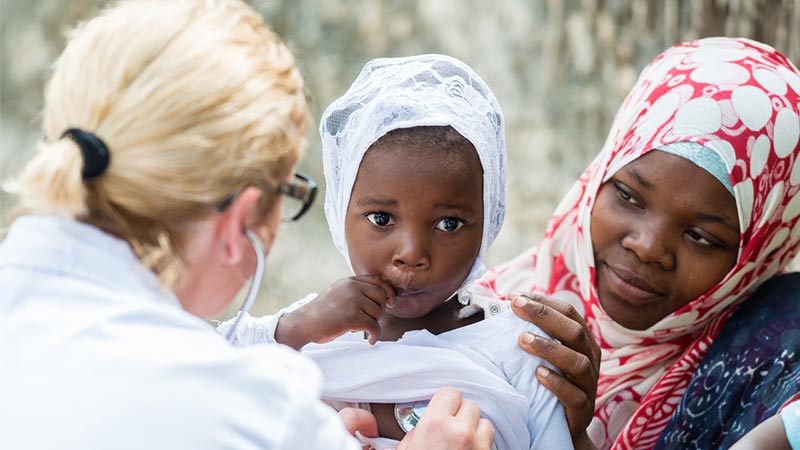At a glance
To promote healthy resettlement, CDC recommends additional overseas public health interventions for U.S.-bound refugees. The Overseas Refugee Health Guidance provides panel physicians with recommendations regarding vaccination and pre-departure treatment for malaria and intestinal parasites.

Overseas Medical Examination and Pre-Departure Medical Screening
CDC's Division of Global Migration Health (DGMH) provides the Department of State (DOS) and the Department of Homeland Security U.S. Citizenship and Immigration Services (USCIS) with Technical Instructions for all physicians performing overseas and U.S.-based medical screening examinations for immigrants and refugees. The Technical Instructions outline the scope of the medical examination.
Panel Physicians
CDC, along with other international partners, has implemented overseas health intervention programs to improve health during travel, reduce travel delays and decrease associated health and cost burden on receiving communities.
Overseas medical examination findings and interventions are documented on the DS medical forms. The DS forms and digital chest x-ray are uploaded to the CDC Electronic Disease Notification (EDN) system. State and local health department officials, as well as clinic staff that treat refugees have access to information for their own arrivals.
CDC and its partners also monitor for acute infectious disease outbreaks among refugees and in host communities. In the event of an outbreak:
- refugees may be monitored for signs or symptoms of disease,
- prophylactic medication and immunizations may be administered,
- or their travel may be delayed.
This helps ensure that refugees are healthy for travel to the United States. CDC routinely sends notification letters to state and local partners regarding outbreaks, disease surveillance, and interventions. Domestic providers can contact their state's Refugee Health Coordinator (RHC) to be added for these communications alerts.
